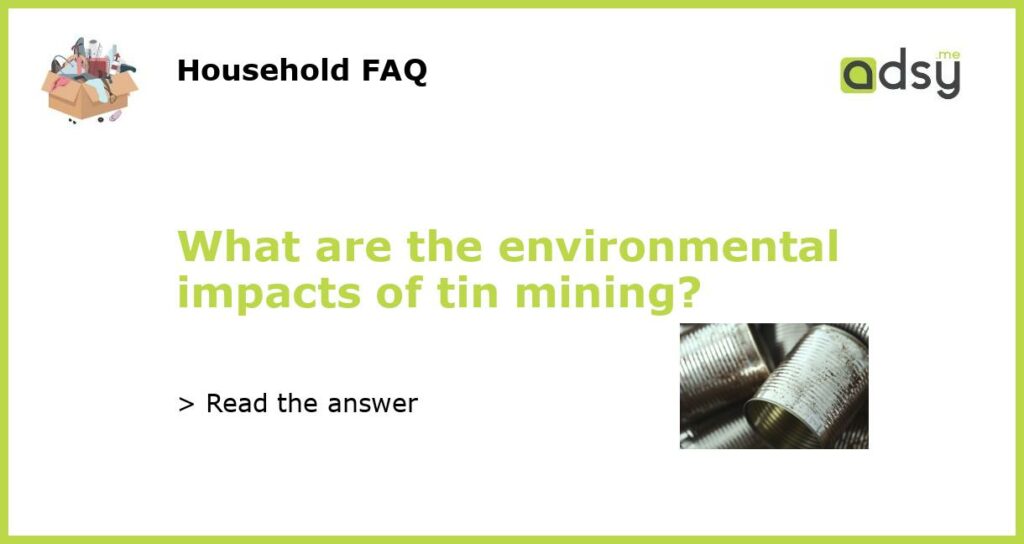What are the Environmental Impacts of Tin Mining?
Tin mining is a major industry in many countries, including Malaysia, Indonesia, Thailand, Myanmar, and China. In fact, it is the world’s largest producer of tin, accounting for over a third of global production. While the economic benefits of tin mining are significant, it is important to consider the environmental impacts that come with it. Here are some of the main environmental concerns associated with tin mining:
Deforestation and Habitat Destruction
Tin mining often requires the clearing of large areas of forest, leading to deforestation and habitat destruction. This can have a severe impact on local ecosystems and biodiversity, as many plant and animal species rely on intact forest habitats for survival. Loss of habitat can also disrupt local ecosystems, leading to a decline in populations of native species.
Soil Erosion and Land Degradation
Tin mining involves the removal of large amounts of soil and rock, which can result in soil erosion and land degradation. The removal of vegetation and topsoil exposes the bare ground to the elements, making it susceptible to erosion by wind and water. As a result, valuable topsoil is washed away, leading to decreased soil fertility and reduced agricultural productivity in the surrounding areas.
Water Pollution
Tin mining can result in water pollution through the discharge of effluents containing heavy metals and other harmful chemicals. These pollutants can contaminate local water sources, including rivers and streams, and pose a risk to both aquatic life and human health. Additionally, the increased sedimentation caused by mining activities can disrupt the natural flow of waterways and lead to flooding in nearby areas.
Air Pollution
Tin mining operations can contribute to air pollution through the release of dust and toxic gases. Dust emissions can be generated during the excavation and transportation of ore, as well as the processing and smelting of tin. Exposure to high levels of airborne dust can have adverse health effects on both mine workers and nearby communities. In addition, the combustion of fossil fuels in mining activities can release greenhouse gases, contributing to climate change.
Social and Cultural Impacts
Lastly, tin mining can have social and cultural impacts on local communities. Large-scale mining operations can lead to the displacement of indigenous people and the loss of their traditional lands and way of life. The influx of migrant workers can also put pressure on local resources and infrastructure, leading to social tension and conflict. It is important for mining companies to engage with local communities and mitigate the negative social impacts of their operations.






